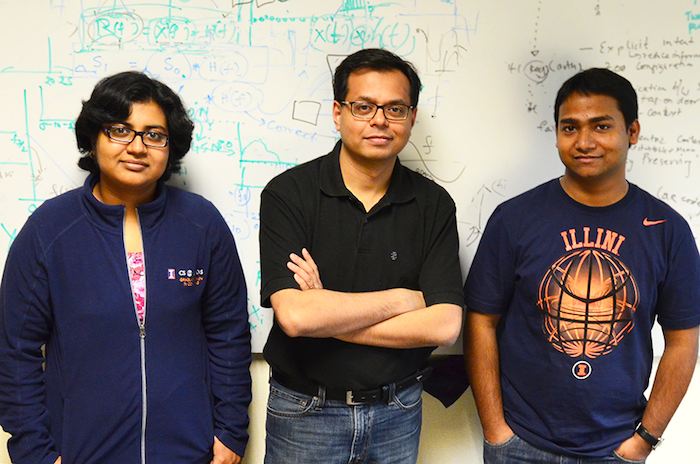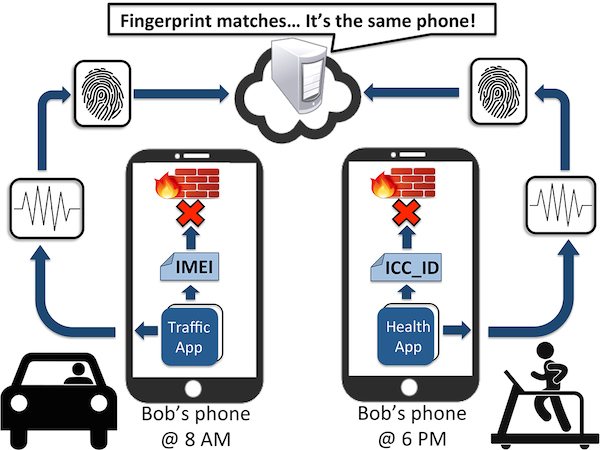No Phones Are Clones - Claims Research & Destroys Your Privacy Hope
Let me just tell you that your iPhone 5S isn't a clone of my iPhone 5S; even though they've been made by Apple in the same factory in China, on the same assembly line. An interesting research performed by Prof. Romit Roy Choudhury and his graduate students shows that the sensors in your smartphone leave trackable fingerprints - which can be used to uniquely identify them with about 96% accuracy. These fingerprints exists because of the imperfections during the process of hardware manufacturing. No two phones can ever be the same; the research claims, and it's possible to uniquely identify phones because of the micro or nano-scale errors during manufacturing.

...and this error, beyond anyone's control, is a serious threat to your privacy. How? It's easy! The researchers showed that just by looking at the accelerometer data from two identical phones; they could uniquely identify the phones. Consider a real world example to understand this better: Suppose you've chosen to hide your current location. However, there's a game or a chat-app running on your phone that has access to the accelerometer or other sensors on your phone. The app will be uniquely identify the output of the accelerometer and send the data to the central 'fingerprint reader' which can decode the fingerprint and find out whether the person is moving in a car or having a walk.

Prof Choudhury says that it's impossible to make two 100% identical things, when produced in millions. Since the fingerprint is generated at the hardware level; there's no way to erase these fingerprints just by altering the software. Even if white noise is deliberately injected in the accelerometer, the fingerprints produced by other sensors like gyrometers, proximity sensors will carry their own fingerprints; which can be used to uniquely identify any device.
While there's no immediate solution available to such type of possible privacy breaches, Prof. Choudhury says that the consumer should be aware and the most important take-home message is the importance of vigilance. We'd like to seek our readers opinion.
Source: #-Link-Snipped-#

...and this error, beyond anyone's control, is a serious threat to your privacy. How? It's easy! The researchers showed that just by looking at the accelerometer data from two identical phones; they could uniquely identify the phones. Consider a real world example to understand this better: Suppose you've chosen to hide your current location. However, there's a game or a chat-app running on your phone that has access to the accelerometer or other sensors on your phone. The app will be uniquely identify the output of the accelerometer and send the data to the central 'fingerprint reader' which can decode the fingerprint and find out whether the person is moving in a car or having a walk.

Prof Choudhury says that it's impossible to make two 100% identical things, when produced in millions. Since the fingerprint is generated at the hardware level; there's no way to erase these fingerprints just by altering the software. Even if white noise is deliberately injected in the accelerometer, the fingerprints produced by other sensors like gyrometers, proximity sensors will carry their own fingerprints; which can be used to uniquely identify any device.
While there's no immediate solution available to such type of possible privacy breaches, Prof. Choudhury says that the consumer should be aware and the most important take-home message is the importance of vigilance. We'd like to seek our readers opinion.
Source: #-Link-Snipped-#
0
